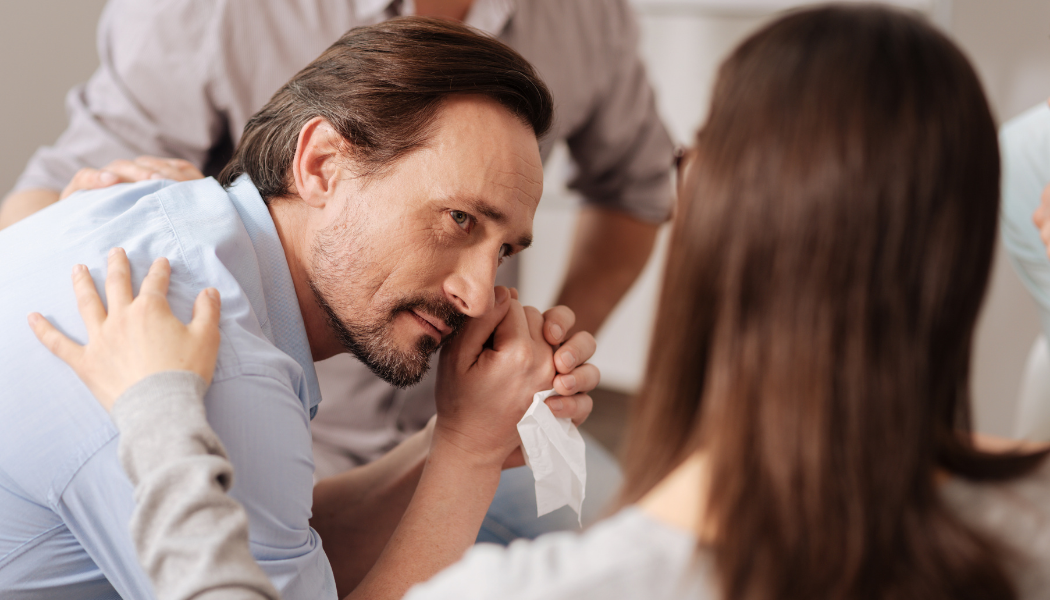Cancer Patient Suicide Risk Higher Than General Population
A cancer diagnosis is difficult on your body, but it can equally severely impact your mental wellbeing. Tragically, the risk of suicide in cancer patients is 4.4 times higher than in the general population. Understanding signs of poor mental wellbeing in oneself and loved ones is one of the best ways to initiate early intervention. In recognition of Self-Care Awareness Month and Suicide Prevention Week, the National Foundation for Cancer Research (NFCR) wants to highlight signs and behaviors to beware of and different steps to consider when these signs are present.
Why is there a higher suicide rate amongst cancer patients?
The cancer experience is multitudinously painful for patients and their families. Each specific cancer type has different types of morbidity, so, as one may imagine, the rates of suicide vary from type to type. Researchers have noted a correlation between cancer types with a higher rate of physical morbidity and an increased risk of suicide. For example, head and neck, lung, and pancreatic cancer are amongst the highest rates of suicide for cancer patients. Similarly, cancer patients experience higher rates of sleep disturbance, post-traumatic stress, anxiety, fear, and worry attributed to their condition. These conditions can increase one’s chance of developing depression.
Warning Signs to Be Aware Of
1. Depression
As mentioned above, it is common for cancer patients to develop depression due to the overwhelming mental strain from a cancer diagnosis. Depression is one of the most common mental illnesses associated with suicide.
2. Hopelessness
While often confused with depression, hopelessness is an entirely separate construct. Hopelessness is a feeling of despair. It is an emotional state in which a person sees no hope in their life and believes it is not worth living anymore. People experiencing hopelessness may alienate their loved ones, appear uninspired, feel powerless, or feel helpless. Depression, on the other hand, is a clinical condition in which the person is perpetually in a state of low mood. People suffering from depression may have an aversion to activities they otherwise enjoy, suffer from low concentration, have difficulty remembering things, and have noticeable changes in their appetite.
3. Feeling a burden to others
Many cancer patients report feeling like a burden to their loved ones; however, a study determined that the feeling was universal among those who committed suicide.
How to Respond to these Warning Signs
Recognizing these signs is the first step in a daunting journey – whether recognizing them in oneself or in a loved one. It can be frightening and difficult to express your concern to a struggling loved one. Consequently, there is a need to normalize conversations about suicide to get appropriate services to the patients in need. As hard as it may be, the first step is voicing concerns about your mental wellbeing or your loved one’s mental wellbeing. Asking and talking about suicide can prevent it, even when done by non-professionals.
Once the ice is broken and the conversation starts, plan to include the medical team in the discussion. The earlier professionals are involved, the sooner they can make a strategic plan to help provide the best treatment and advice. If there is resistance to having a conversation with the medical team, it is important to monitor the signs and openly discuss the mental state with a loved one. If you are concerned for a loved one who does not want to speak to a doctor, you may consider independently speaking to their medical team.
Cancer Patient Self-Care
Self-care is vital for all cancer patients, regardless of their mental wellbeing. The disease introduces unexpected and exhausting challenges that take a toll on the body and mind. Remember to find joy and practice self-care – even if just for a short moment each day. Some easy and nourishing self-care routines may include:
1. Taking Time to Pause and Reflect
Navigating the anxiety and uncertainty around a cancer diagnosis causes a lot of noise in the mind. Pausing and embracing the silence allows you to process emotions and clear the mind. Of course, if the mind doesn’t want to be silent, taking a pen to paper and letting your thoughts flow is a cathartic way to embrace your feelings.
2. Self-Care Classics
A bubble bath and a cup of hot cocoa are a classic for a reason! If there is a routine that makes you feel relaxed and happy, treat yourself. Remember that your happiness and comfort should be a high priority, whether it is an after ‘chemo treat’ or a ‘just because’ occasion.
3. Socializing
Spending time with loved ones is one of the best things to increase your mood instantly. Pick up the phone or, better yet, extend an invite for an in-person hangout.
4. Going Outside
Being amongst nature (even if just a courtyard) can reduce stress, anxiety, and depression. Spending time outside can even improve your memory!
If you are feeling depressed or suicidal, please know the National Suicide Prevention Lifeline is open 24/7 via a toll-free hotline with the number 1-800-273-8255. It is available to anyone in suicidal crisis or emotional distress.
Additional Reads You May Enjoy:
Coping With Cancer—It’s Different for Everyone
Avoid Caregiver Burnout – Take Time for You
Yoga for Insomnia, Anxiety and Socializing in Cancer Patients
Stay connected with the cancer community! Receive NFCR’s monthly e-newsletter and blogs featuring stories of inspiration, support resources, cancer prevention tips, and more. Sign up here.












